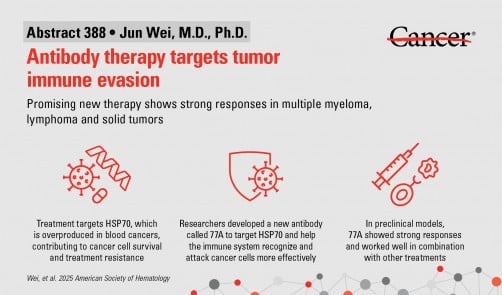Moderna, Inc. has made a significant advancement in cancer treatment by dosing the first patient in a Phase 1/2 study of its investigational mRNA-based T-cell engager (TCE), known as mRNA-2808. This milestone was achieved on November 3, 2025, at SCRI Oncology Partners in Nashville, Tennessee, in collaboration with the Sarah Cannon Research Institute. The trial focuses on patients with relapsed or refractory multiple myeloma (RRMM), a challenging form of cancer.
The mRNA-2808 therapy is designed to harness the body’s immune system by encoding three T-cell engagers that specifically target validated myeloma-associated antigens. This innovative approach aims to tackle tumor heterogeneity and address resistance mechanisms that often complicate treatment. By utilizing a multiplexed strategy, Moderna hopes to enhance the effectiveness of T-cell engagement in combating this aggressive cancer.
Innovative Approach to Multiple Myeloma Treatment
Multiple myeloma is known for its complexity and unpredictability, making treatment particularly difficult. Traditional therapies often face limitations due to the diverse nature of the disease. Moderna’s mRNA-2808 represents a new frontier in immunotherapy, offering a tailored approach aimed at overcoming these challenges.
The Phase 1/2 study will evaluate the safety, tolerability, and efficacy of mRNA-2808 in participants with RRMM. By focusing on the immune response, this trial seeks to determine whether the T-cell engagers can effectively target and eliminate cancer cells, thereby improving patient outcomes. The collaboration with the Sarah Cannon Research Institute is crucial, as they bring extensive expertise in clinical research and oncology.
Future Implications for Cancer Treatment
The initiation of this study marks an important step for Moderna in expanding its mRNA technology beyond infectious diseases. As the company continues to innovate, the results from this trial could pave the way for new treatment paradigms in oncology.
Dr. Paul Burton, Moderna’s Chief Medical Officer, expressed optimism about the potential of this therapy. He stated, “This is an exciting moment for Moderna as we explore the application of our mRNA technology in treating complex cancers like multiple myeloma.”
As the study progresses, researchers and patients alike will be closely monitoring the outcomes. The success of mRNA-2808 could not only provide new hope for those battling multiple myeloma but also set a precedent for future cancer therapies that utilize similar innovative strategies. The global health community remains attentive to developments from this trial, highlighting the ongoing need for effective treatments in the fight against cancer.







